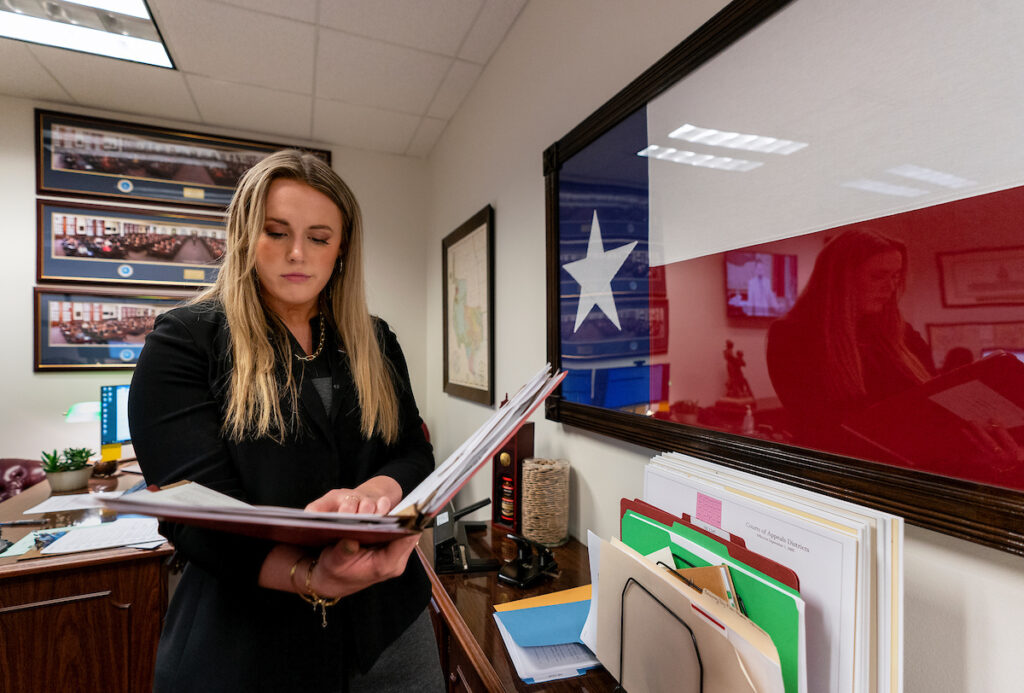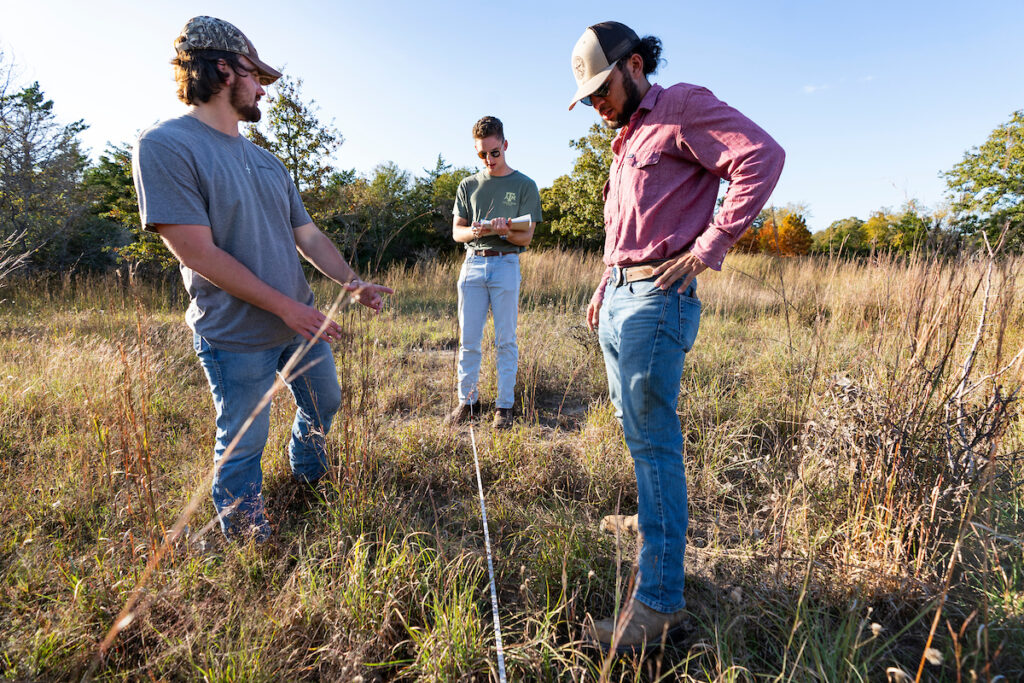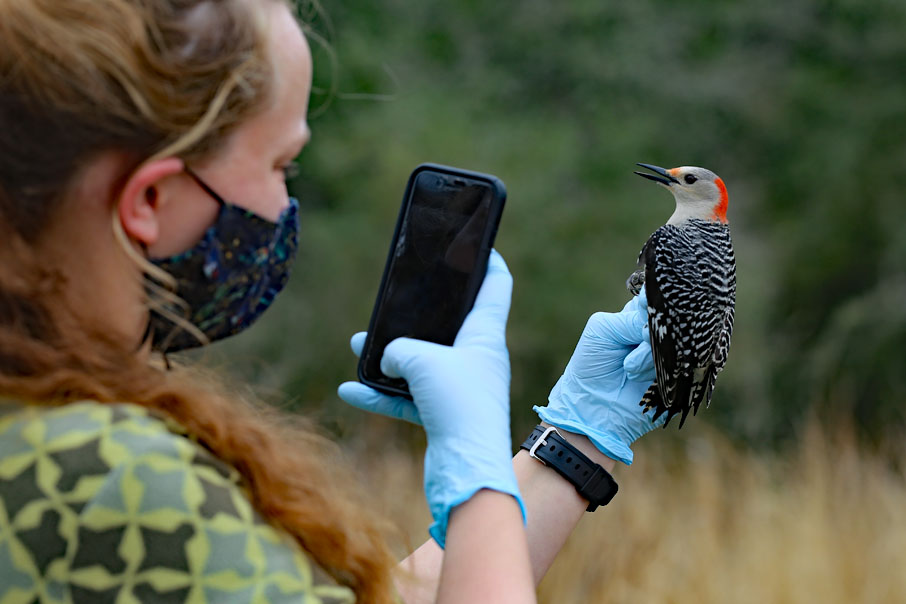
Undergraduate Degrees
Our Bachelor of Science in Rangeland, Wildlife and Fisheries Management (RWFM) focuses on immersive field experiences, professional development and mentored research opportunities. In our curricula, we place a special emphasis on applied knowledge and skills, empowering you to continue your education into graduate and other professional programs, or pursue a wide range of careers in conservation and land management.
In response to the complexity and diversity of our field, the B.S. in RWFM program offers five unique specialization tracks to further tailor your degree to best meet post-graduation needs.

Dr. Red Duke Wildlife and Conservation Policy Program
A five-year joint-degree program with The Bush School of Government and Public Service to earn both B.S. Rangeland, Wildlife and Fisheries Management and Master of Public Service degrees.

Rangeland, Wildlife and Fisheries Management 4+1 Fast Track
The Rangeland, Wildlife and Fisheries Management Fast Track allows high-achieving undergraduate students to pursue a 36-hour Master of Natural Resources following their junior year.
Explore Career Paths
Begin the journey from student to natural resource professional with field experiences and courses that prepare you for a wide range of careers in both the public and private sectors.
Here are some of the most common paths our graduates pursue.
| Job Title | Description |
| Wildlife Biologist | Work to protect biodiversity, often with threatened and endangered species, specializing in a group of species or specific habitats in which the species live. They work in the outdoors collecting data and implementing monitoring or management techniques, in addition to working in indoor laboratories, analyzing their data from the field, writing reports on their findings, and coordinating with other biologists, researchers and agencies. |
| Fisheries Biologist | Work to protect and conserve the health of a variety of fish species and their habitat. They can work in a variety of environments including freshwater and saltwater, as well as aquacultural operations to collect data on fish and water quality. Laboratory analysis of data is an important component of this career, as well as report writing and collaboration with a variety of agencies and other biologists. |
| Environmental Consultant | Conducts biological surveys as part of clearance and approval for mostly privately funded projects such as housing and commercial developments, resource extraction (e.g., mining), and other developments on private and public lands. Often must be familiar with government regulations (NEPA, EIS), use of GIS, literature reviews, and report writing. Permanent positions are available, but much of the work is seasonal for smaller organizations. |
| Game Warden | Responsible for patrolling assigned areas to prevent fish and game law violations. They investigate reports of damage to crops or property by wildlife and compile biological data for subsequent reports and management information. |
| Ranch Manager | Responsible for overseeing livestock, crop or dairy operations, implementing land and wildlife management techniques, managing hunting programs, and coordinating ranch personnel on designated properties. |
| Environmental Lobbyist | Work to persuade politicians to pass laws, policies, and regulations for a cleaner environment. They accomplish this by developing campaigns, advocating, fundraising, and creating advertising campaigns aimed to make a difference on political and environmental issues. Their job involves many meetings and coordination with legislators, representing their organization at media events as well preparing press releases and information literature. |
| Environmental Policy Analyst | Objectively research and analyze the potential impacts that policies and laws have on the environment, public health, and the economy to make recommendations to governmental officials and organizations on how to improve policy effectiveness or implementation. Analysts may also be involved in designing new policy. |
| Extension Agent or Specialist | Develop and deliver science-based educational resources and programming related to the management and conservation of natural resources. Extension agents and specialists are affiliated with land-grant universities and provide critical information and education to communities, producers, and landowners. |
| Outdoor Educator or Interpreter | Responsible for educating the public about environmental science and issues, ecology, and wildlife. They often work with school-aged children, engaging with them daily with lesson plans, and environmental focused activities, and may handle ambassador animals. |
| Natural Resource Communicator | Plans and creates content to deliver information related to natural resources, research, land management, current environmental issues or trends to advance public knowledge and understanding. Communicators utilize a variety of mediums including, digital, print, video, and podcast and work across an array of industries, public agencies, and non-profits. |
RWFM Undergraduate News

Senior Hannah Evans pursues her passion in Department of Rangeland, Wildlife and Fisheries Management
As a kid who loved nature, Hannah Evans grew up with what was perhaps the world’s best backyard — a 30,000-acre natural playground.
Evans, a senior in the Texas A&M College of Agriculture and Life Sciences Department of Rangeland, Wildlife and Fisheries Management, graduates in May but her career path and passion for ecology and conservation are in her DNA.
